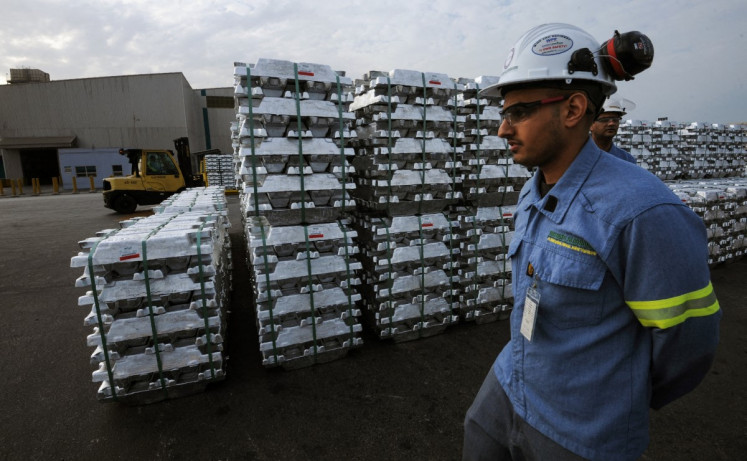Popular Reads
Top Results
Can't find what you're looking for?
View all search resultsPopular Reads
Top Results
Can't find what you're looking for?
View all search resultsThe windfall and the burden
If this huge additional subsidy is allowed, the fiscal deficit could exceed the 4.85 percent of gross domestic product (GDP) target this year, whereas the government is required by law to keep the deficit below 3 percent of GDP in 2023.
Change text size
Gift Premium Articles
to Anyone
T
he commodity boom since the second half of last year, which was fired by the post-pandemic economic recovery and further boosted by the Russian invasion of Ukraine in February, has brought windfall revenues to the state budget but has also left the government’s fiscal management in a delicate dilemma.
The government is lucky to have the commodity boom, notably for coal, palm oil and metals, at a time when it needs a huge amount of additional revenues to protect the people from the adverse impact of the skyrocketing international prices of energy and food commodities. The problem is that the country depends on imports for almost 60 percent of its fuel, 100 percent of its wheat and 50 percent of soybeans.
Adjusting the domestic prices of fuel, electricity, LPG and fertilizer to international price rises will trigger hyperinflation, erode the purchasing power of the people and increase poverty. But simply increasing subsidies could cause the fiscal deficit to explode to an unmanageable level
Preliminary official estimates show that energy subsidies could rise to Rp 320 trillion (US$22.4 billion) from an earlier target of Rp 134 trillion if oil prices remain above $100/barrel, not including the fertilizer subsidy, which was earlier budgeted at Rp 25.3 trillion. If this huge additional subsidy is allowed, the fiscal deficit could exceed the 4.85 percent of gross domestic product (GDP) target this year, whereas the government is required by law to keep the deficit below 3 percent of GDP in 2023.
Apparently concerned about the risks of hyperinflation and social instability, the government seems tempted to simply use the windfall revenues from the commodity boom to cover the bulk of the huge additional subsidies. The government also seems to have been fully aware of the disadvantages of commodity-based (blanket) subsidy schemes, which are vulnerable to abuse and corruption. The biggest challenge now is how the government can improve the comprehensiveness and accuracy of the data on the target beneficiaries for its social-safety net programs.
But the government also should realize that the commodity boom will not last forever. We have been familiar with such bouts of boom and bust. The government should not be lulled by the windfalls into complacency, and forget its reform agenda.
There are still many downside risks to the economy. External factors are mostly unfavorable. The World Bank last week reduced its global growth forecast for 2022 by nearly a full percentage point to 3.2 percent and the International Monetary Fund to 3.6 percent from its January forecast of 4.4 percent. The main reason is the Ukraine crisis with its many repercussions, notably on fuel and food prices.
True, our situation now is much better. Bank Indonesia (BI) booked a $3.3 billion current account surplus for the whole of 2021. Indonesia’s international trade continued to boom in March with another surplus of $4.5 billion. Foreign ownership of government bonds has declined from 40 percent in 2013 to about 19 percent now and our international reserves totaled $141.5 billion as of February, equivalent to 7.3 months of imports and government foreign debt servicing.
But faster-than-expected monetary tightening in the United States and the geopolitical uncertainty could still set off massive capital inflows from Indonesia, thereby forcing BI to tighten its money policy earlier than planned.











